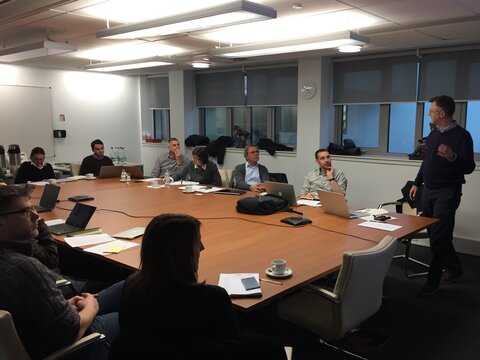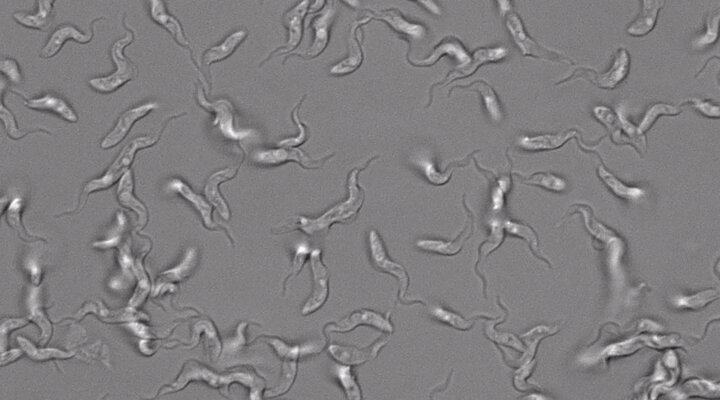Towards a vaccine for animal African trypanosomiasis

On 12 November 2019 the workshop ‘Towards a vaccine for animal African trypanosomiasis’ was hosted at the Roslin Institute, University of Edinburgh.
Animal African trypanosomiasis (AAT) is one of the most significant infectious disease threats to livestock across sub-Saharan Africa, and is also important across Asia and South America. Control is mainly through a small number of outdated drugs, and a vaccine is urgently required. However, vaccine efforts have stalled over the past 20 years. The stimulus for this meeting was the recent step-changes in knowledge for both trypanosomes and the bovine host, which mean revisiting vaccination against AAT is a viable proposition.
There were 20 attendees (representatives from the Roslin Institute, University of Edinburgh, University of Glasgow, University of Liverpool, University of Nottingham, University of Massachusetts-Amherst, Sanger Institute, Pirbright Institute, GALVmed and Clinglobal), representing a breadth of disciplines and expertise of relevance to trypanosomes and vaccinology.
The aim of the workshop was to discuss recent advances in knowledge and tools with respect to both the livestock disease-relevant parasite species (Trypanosoma congolense and T. vivax – most knowledge has been historically generated using the human pathogen T. brucei) and immunology of the clinically relevant bovine host, with a focus on updates that have relevance to facilitating vaccination research.
Topics covered included recent developments in trypanosome research, in particular insights into the population genomic landscape of T. vivax and T. congolense, work undertaken to identify and validate vaccine candidates in these two species, and recent developments in T. congolense research that have the potential to be transformative; in particular the ability to routine genetically modify this organism that has enabled the development of a novel genome-wide approach to identifying vaccine candidates, and the potential utility of non-pathogenic trypanosomes as vaccination vehicles. Relevant research and developments in the bovine immune response were considered, including significant advances in the ability to analyse cattle B cell and antibody repertoires, the potential utility of ‘ultralong’ bovine antibodies in targeting trypanosomes, and data on T cell-focused approaches to trypanosome vaccines. In combination with discussions around what a livestock trypanosomiasis vaccine should look like, there was also consideration of available facilities for large scale vaccination studies in cattle, and the recent advent of the Livestock Antibody Hub (hosted at Pirbright Institute, funded by the Bill & Melinda Gates Foundation).
The outcome of the meeting has been the establishment of an initial network of scientists who are well-positioned to collaborate on the design of projects focused on trypanosomiasis vaccination, with an application currently under consideration for funding. The meeting highlighted that there is now a realistic prospect of developing a vaccine against animal trypanosomiasis, which would be a significant step forward for animal health and productivity in resource-poor regions of the world.
